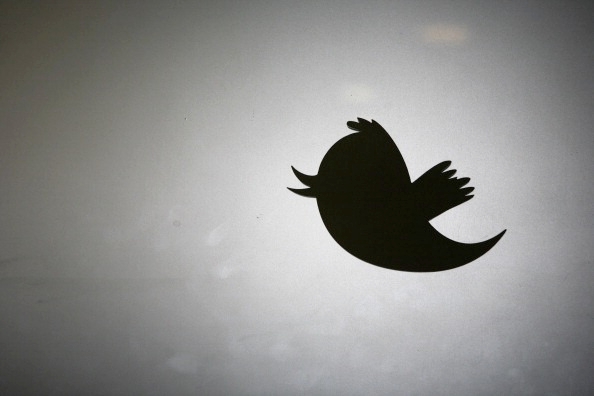Last year, my old sparring partner George Monbiot got himself into a spot of bother. ‘Why not stick the knife in on your blog?’ various people suggested. But I didn’t because George’s travails had nothing whatsoever to do with his wrongheaded political views (which I’m more than happy to attack at every turn). They had to do with a libel he’d repeated about someone on Twitter. About this, I refused to gloat.
This is not because I’m an incredibly decent, warm and caring person. Well, not just. It’s because, as a fellow Twitter user, I recognised a case of ‘There but for the grace of God go I.’ Of course I felt terribly sorry for the poor fellow he’d libelled. But if the fault lay anywhere, I thought, it didn’t lie with George; rather it lay with the perpetually gaping maw of the gigantic elephant trap that is Twitter.
Twitter is a publishing medium more dangerous than any that has ever before existed. The problem is that it is once trivially ephemeral and hideously permanent. Whatever your state of mind, whether you’re drunk or sober, depressed or euphoric, it’s there waiting to capture your every thought from the moment you wake up to the moment you check your Twitter feed one last time before you go to sleep.
‘Shock me! Thrill me! Entertain me!’ Twitter pleads with you. And because it’s so easy and quick to do — only as long as it takes to type 140 characters and press the send button — you rarely pause to consider that your joke or retweet or throwaway one-liner might have any real consequences. After all it’s only Twitter.
Most of the time, it’s true, it is only Twitter. More often than not your remark gets ignored, either because it’s too dull or because there’s a more interesting story about a Twitter character called @Pontifex resigning or because it’s just one of those days when the fish aren’t biting.
Just occasionally, though, the opposite happens. You find, to your horror and astonishment, that a tweet which took you less than 15 seconds to write is in danger of destroying your life. No really. You might be a journalist, like me, who writes hundreds of thousands of words’ worth of considered, well-wrought, nuanced articles expressing precisely who you are and where you’re coming from. But as far as the mob is concerned, that makes not the blindest bit of difference. It’s on those 140 characters you’re being tried and condemned. You’re hateful. You’re a misogynist. You’re anti-disabled. You’re a racist. You’re a rapist. Or whatever. And there’s no room for wriggling, you said it, after all. It’s there: in black and white — and ‘favourited’ by various ill-wishers, just in case you try to erase it.
A Twitter storm can happen to anyone, there’s no rhyme or reason to it. The supremely well-loved Stephen Fry got caught in one once over some mild suggestion that maybe men and women have different sexual urges. A young accountant called Paul Chambers lost his job and landed a £1,000 fine for Tweeting what was patently a joke — read by, at most, 600 people — about blowing up his local airport. The Guardian columnist Suzanne Moore got torn apart by transsexual activists for some remarks which I’m quite sure, as she wrote them, she had absolutely no intention whatsoever of making viciously ‘transphobic’.
Last week it was my turn. I shan’t rehearse the painful and embarrassing details. If you’re prurient, you can look it up online, but it would be kinder if you didn’t. My tweet — a provocative attempt to draw attention to an article a friend had written — was ugly, ill-phrased, ungallant, tasteless. I’ve apologised; my apology was accepted; and I hope that that’s the end of it.
So why am I raking over the coals by writing about it here? Various reasons. First, though I think it shouldn’t be — it’s a hysterical out-of-control playground, not a worthwhile debating forum — Twitter is now taken very seriously by the commentating classes and is therefore, like it or not, a story. Second, as a warning to all those -Twitter users who’ve yet to appreciate the pitfalls of the medium: my friends (and enemies), be advised that it’s simply too risky to tweet anything you wouldn’t be prepared to see in print or hear quoted in a court of law.
Third, and most importantly, I write this as a cri de coeur. Last week I came the closest I’ve ever done to losing my livelihood, my reputation, my career, everything over fewer than 20 ill-chosen words in a medium recognised by almost everyone who uses it as trashy, throwaway, gratuitously provocative, ephemeral and not to be taken too seriously.
What has happened to our culture — especially where social media is concerned — that such a state of affairs is not merely possible, but increasingly common? We live in an era where a housing officer from Bolton was actually demoted for writing on Facebook that gay marriage was ‘an equality too far’. Where a Kent teenager was arrested, for God’s sake, for posting a picture of burning poppies on Remembrance Day.
Perhaps we should blame Tony Blair for starting it with his hate-crime laws, a sign that, from henceforward, wrong-thinking was to be treated almost on a par with wrong-doing. But maybe he was merely reflecting the popular will. Maybe we really have reached such a state of intellectual decadence, of weaponised victimhood, of licensed offence-taking, that tasteless metaphors, insensitive comments or hurtful jokes are now to be considered as great a personal invasion as physical assault.
In my own case I’ve been very lucky. I work for people who value free speech. But many others do not and I fear for their future. Orwell predicted this. It has come to pass.







Comments